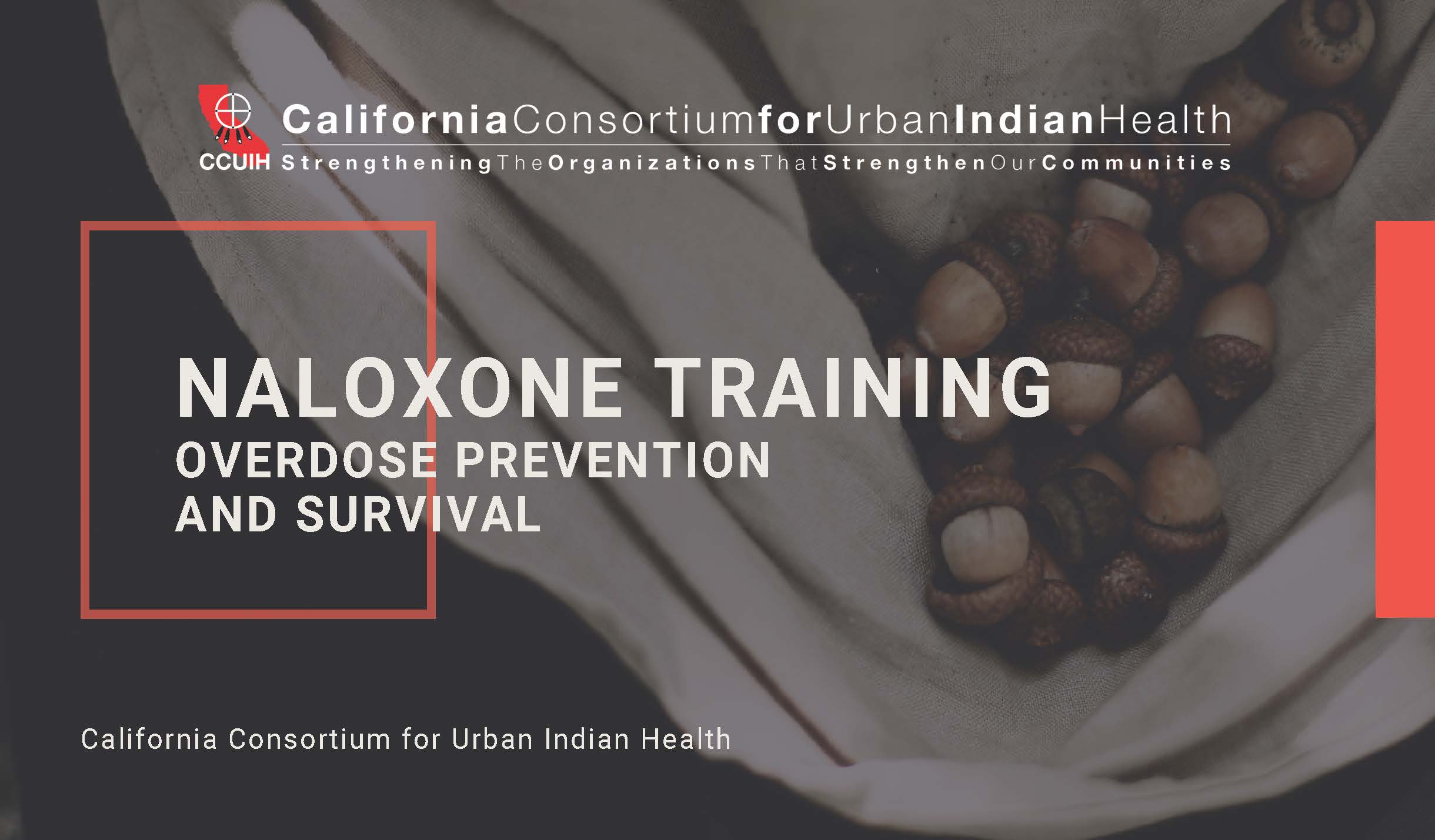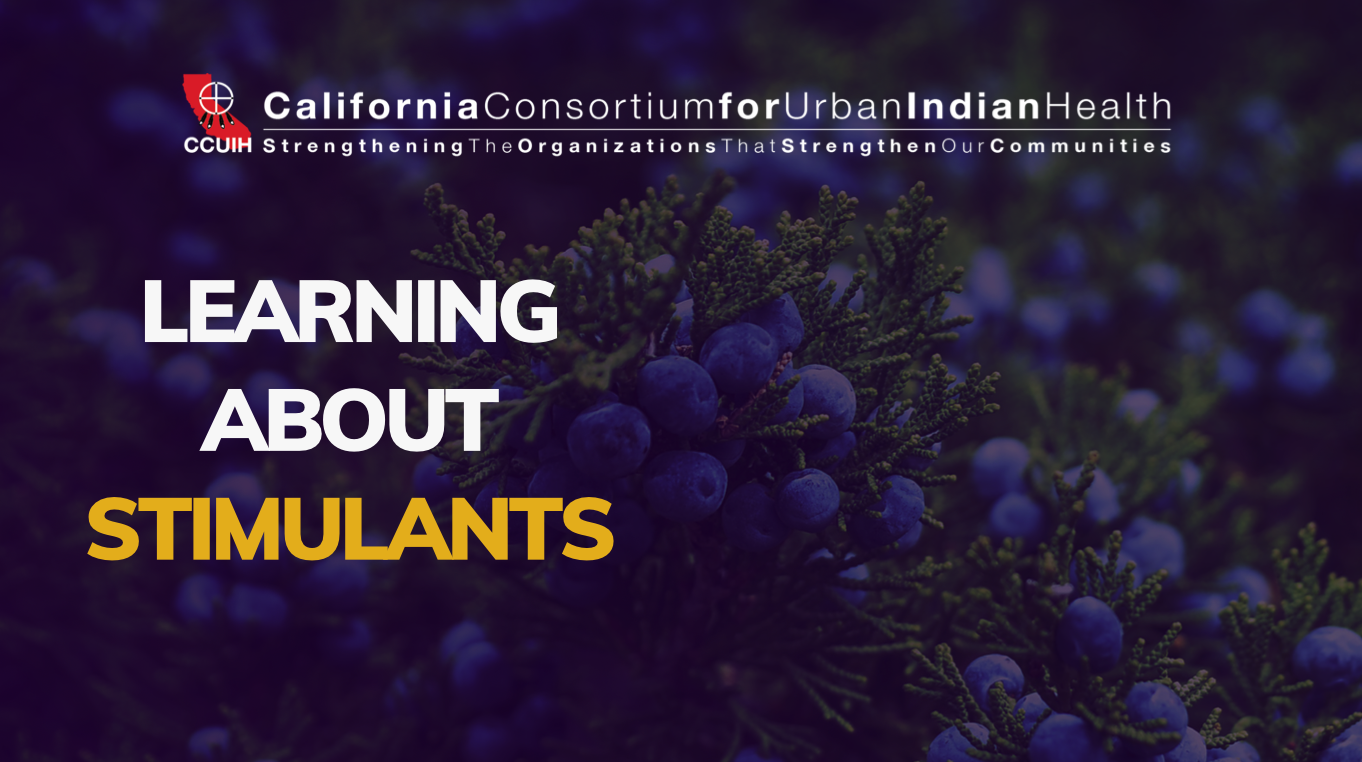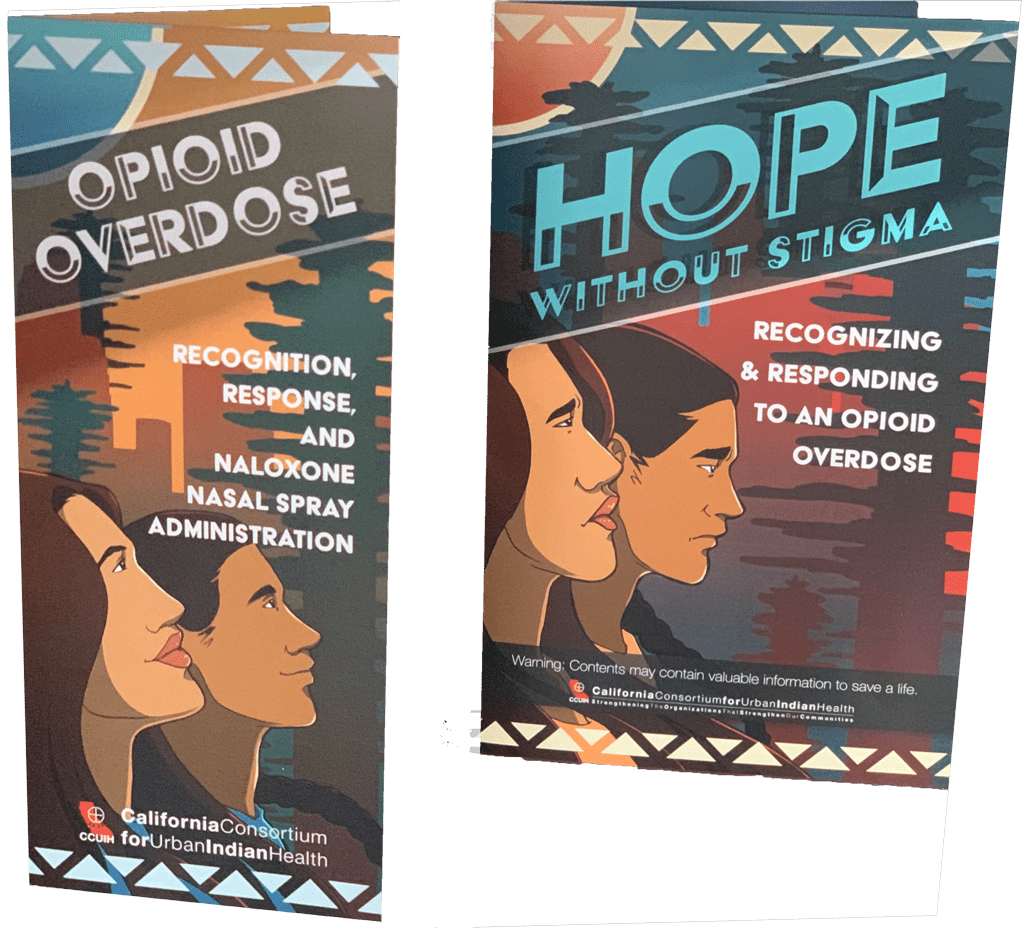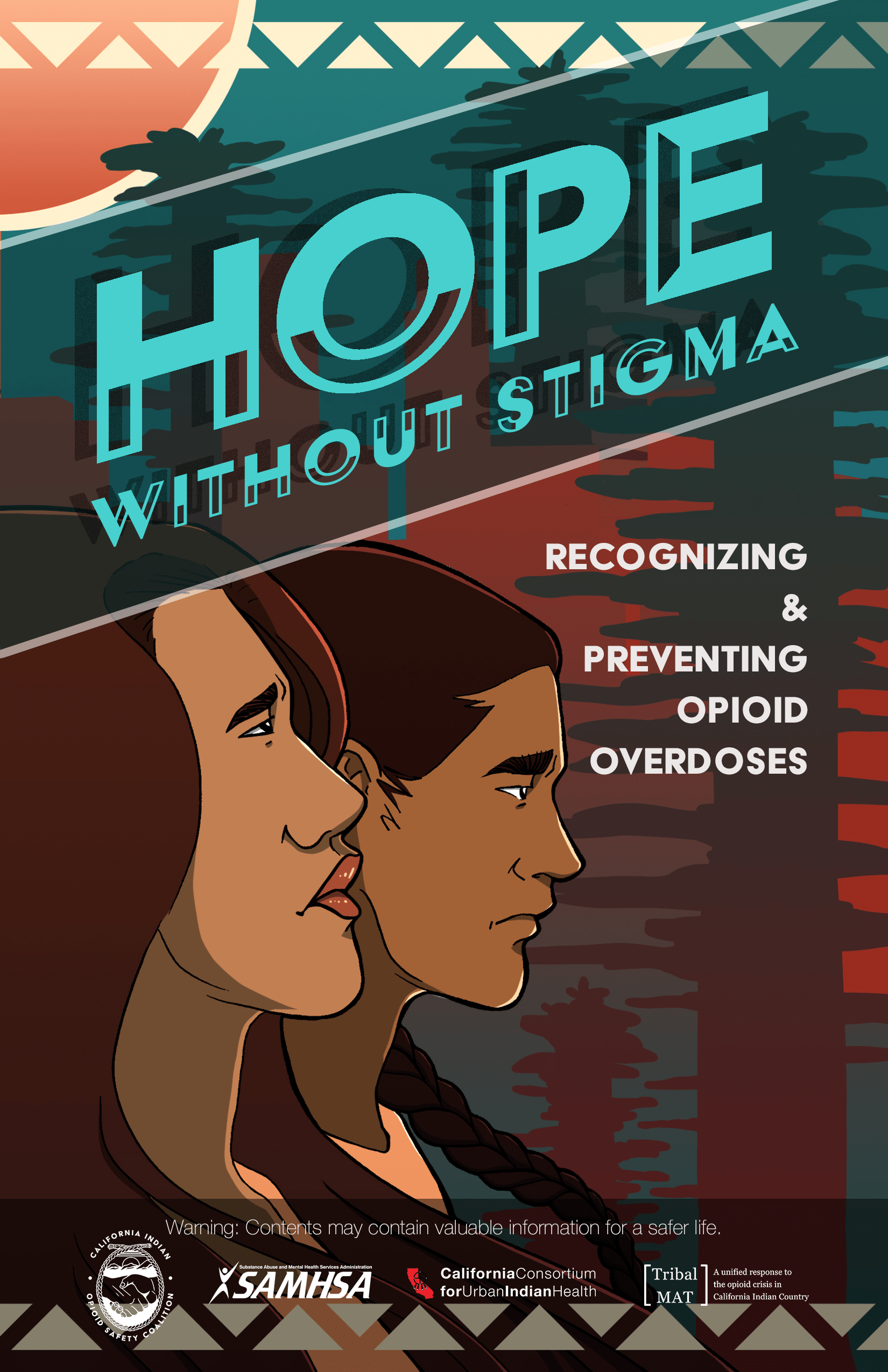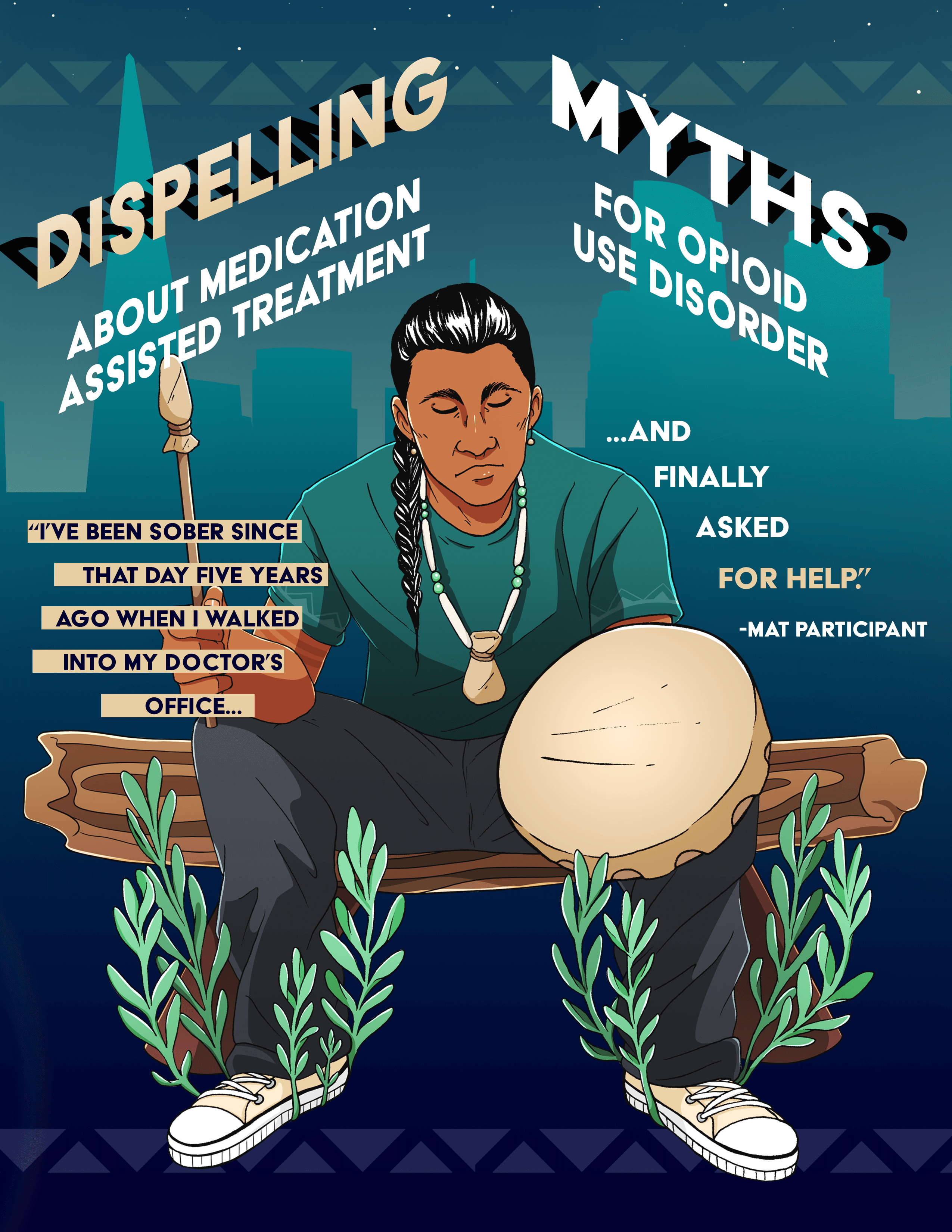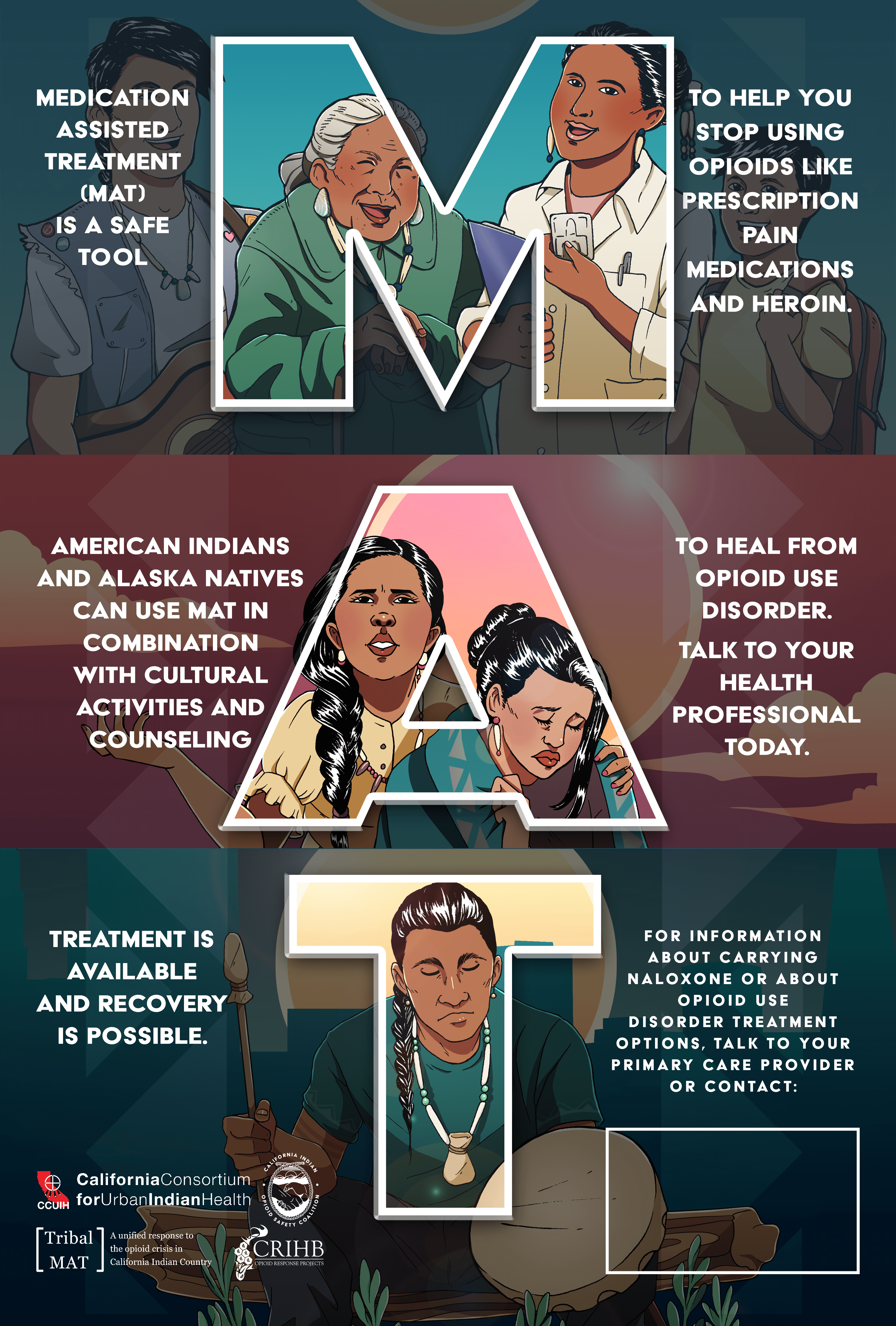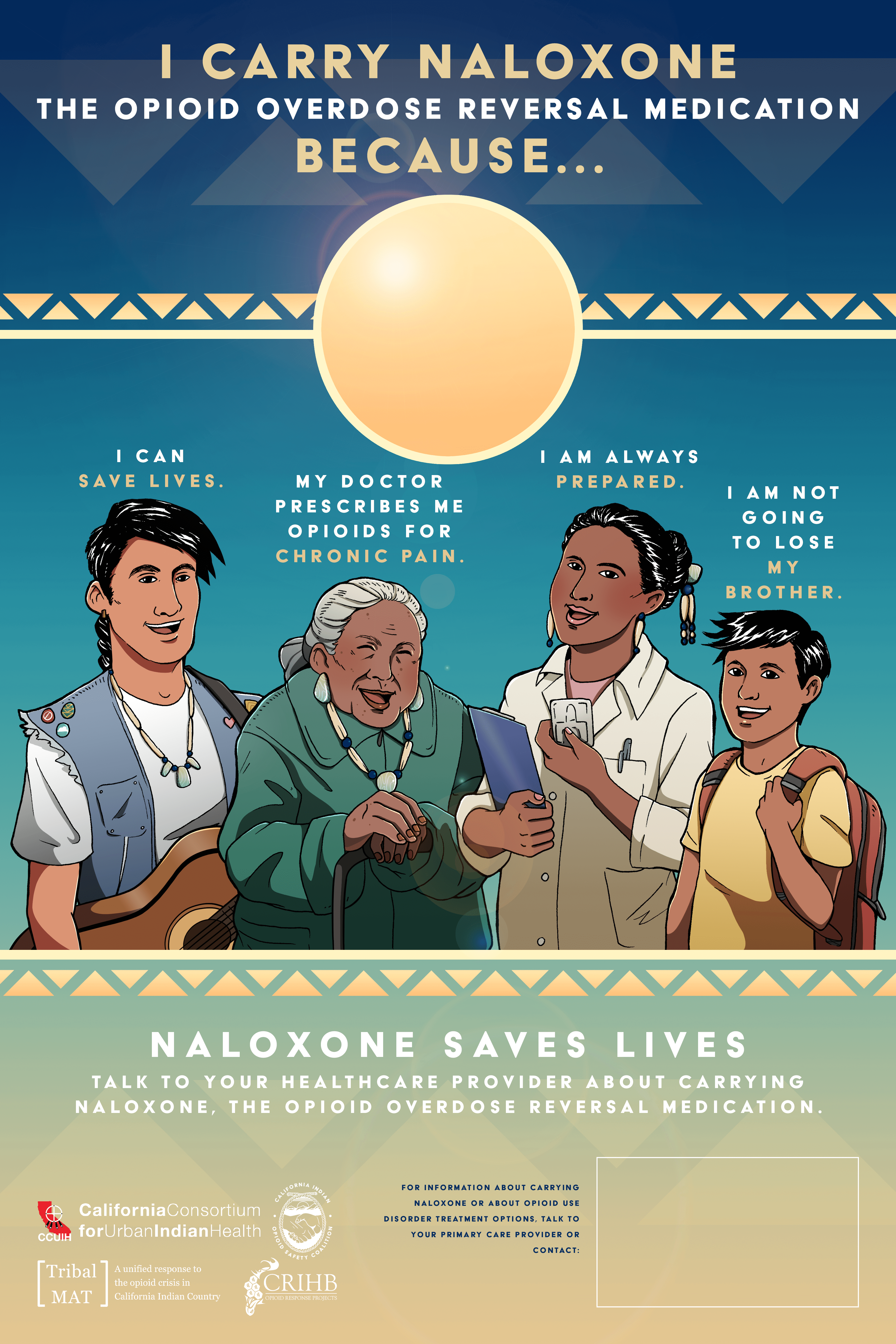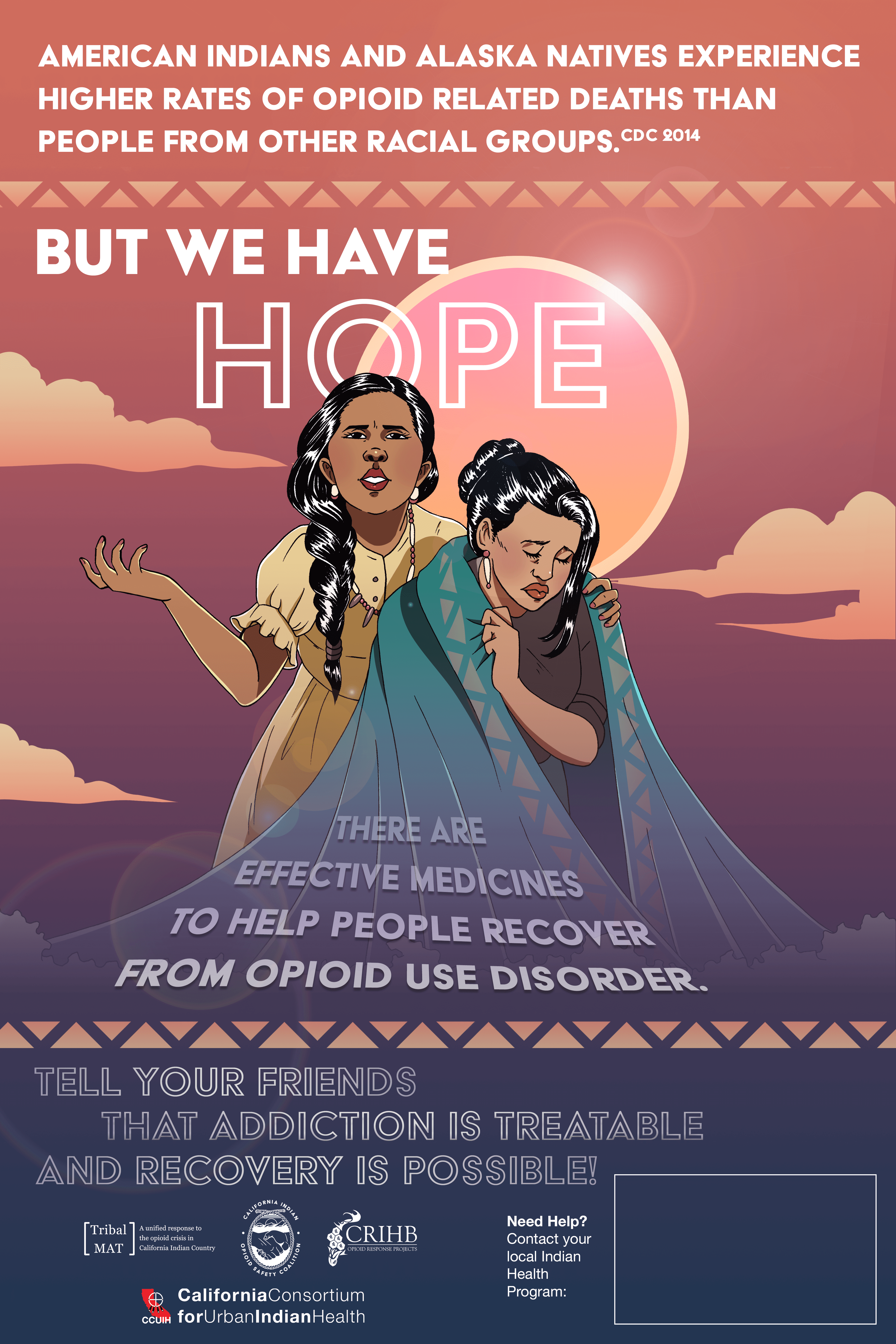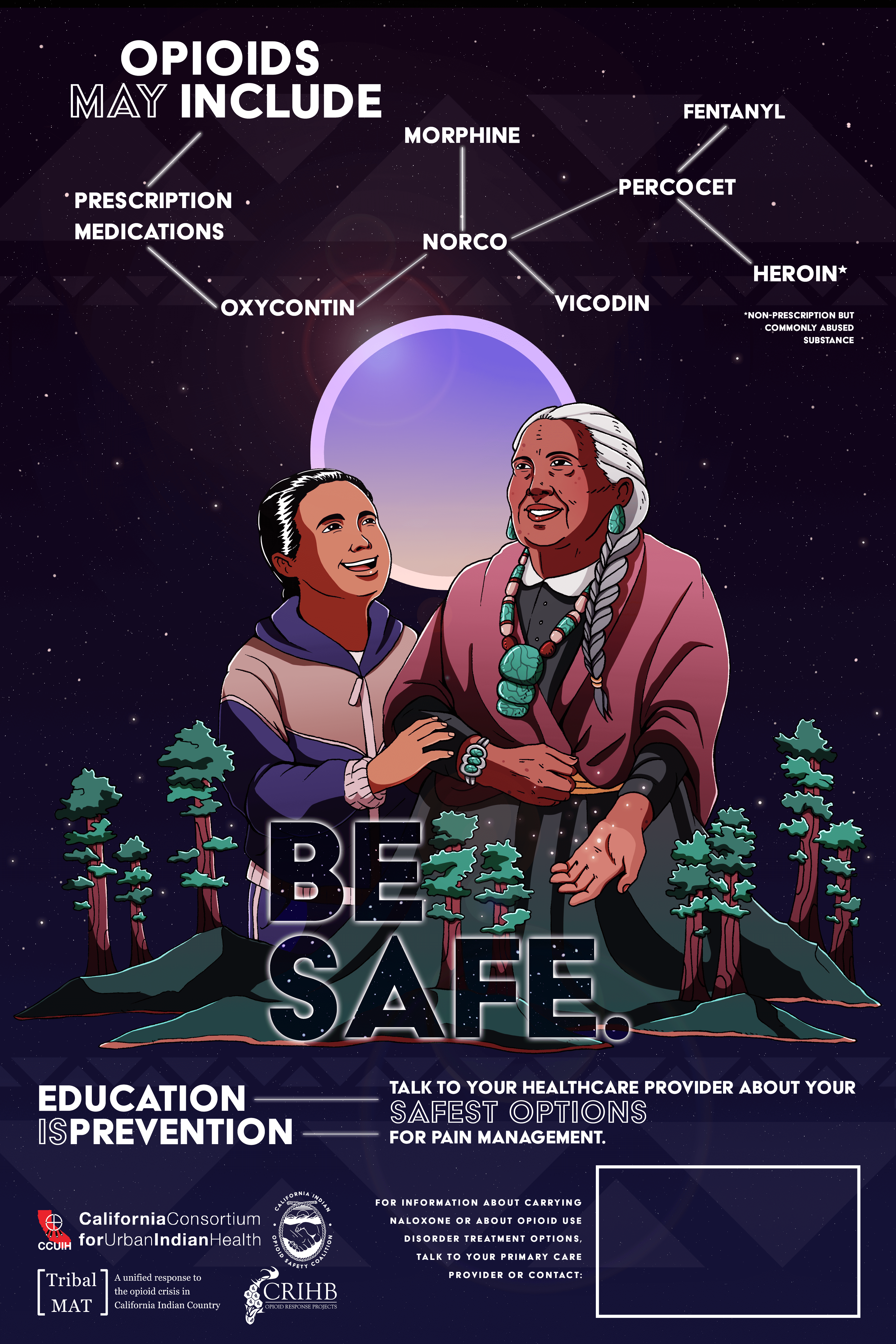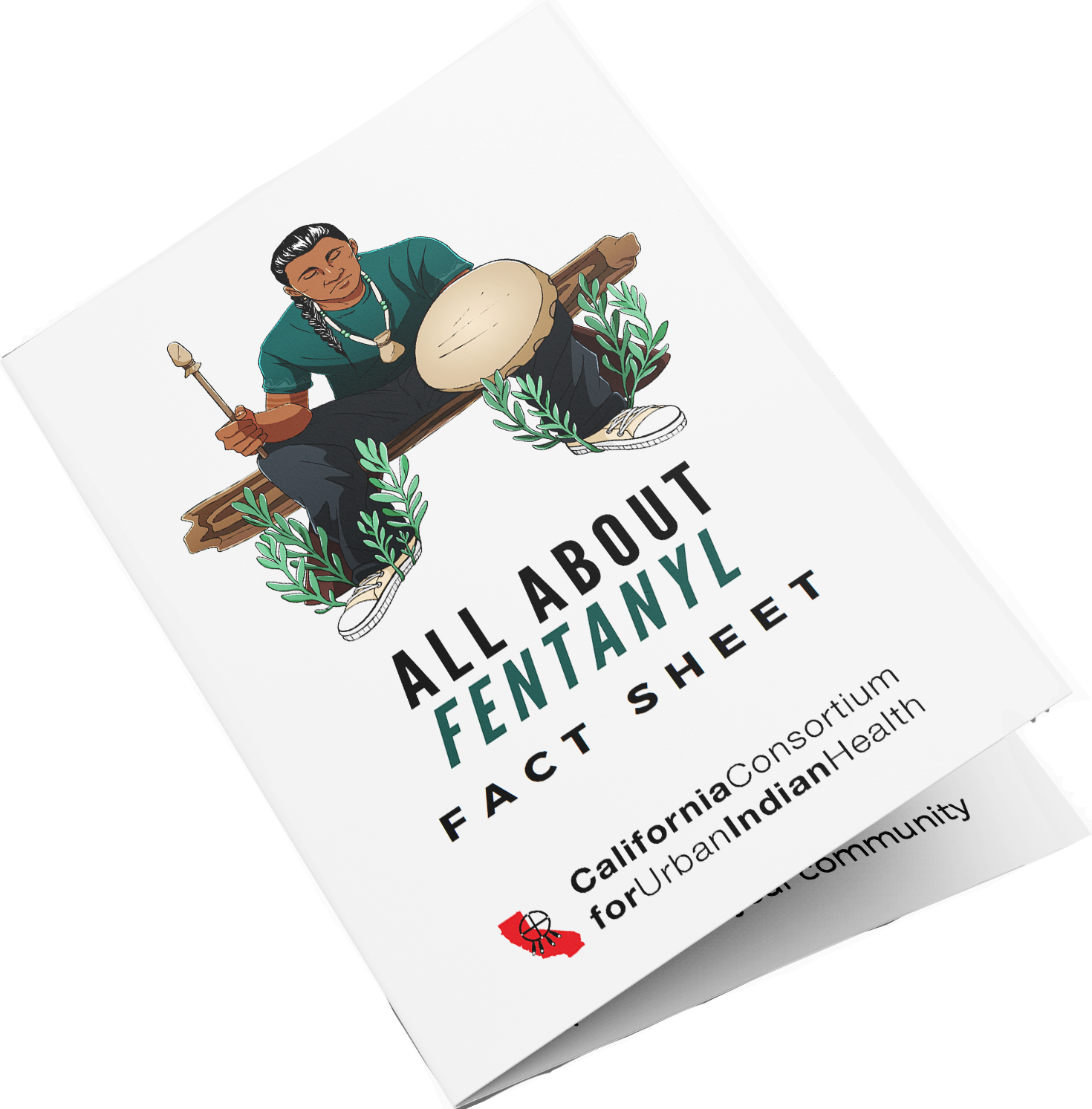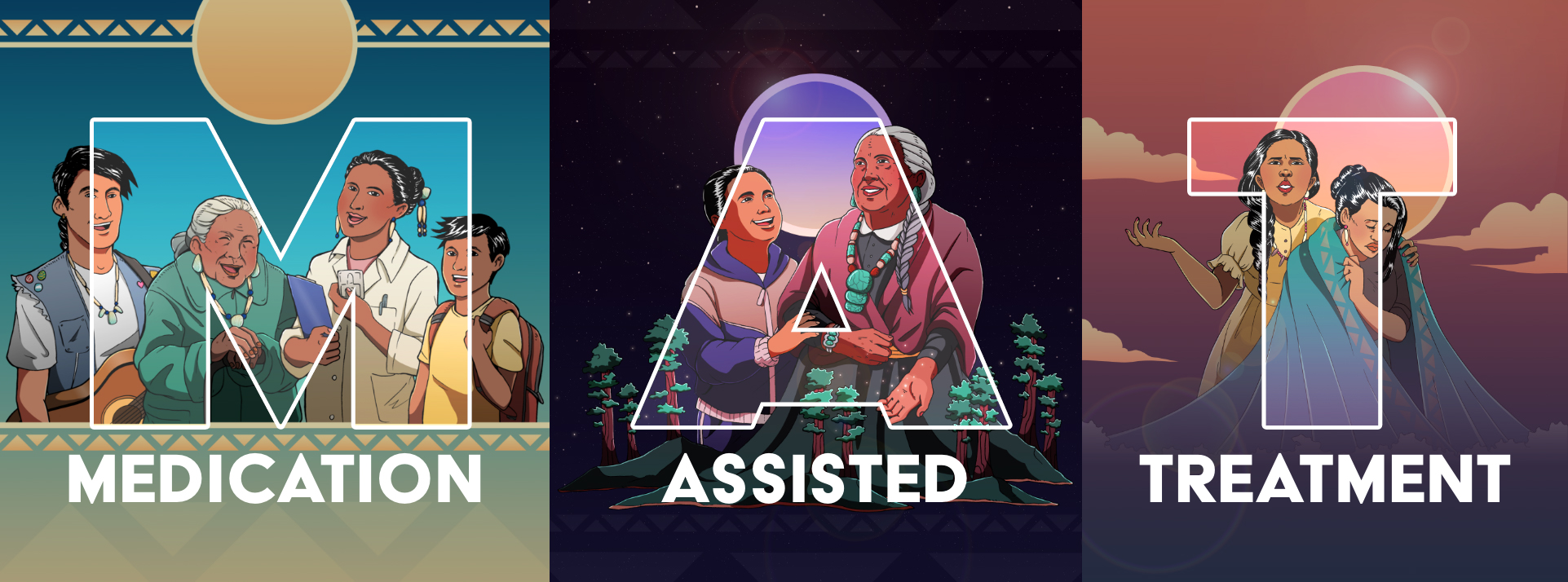
About the Project
CCUIH’s Medication Assisted Treatment (MAT) Project is funded through the CA Department of Health Care Services MAT Expansion and Tribal MAT Projects. This project is designed to meet the specific prevention, treatment, and recovery needs of California’s Urban Indian communities through Naloxone and Substance Use education, technical assistance to Urban Indian Health Programs, and education and materials distribution.
Naloxone Training Materials
We are working to increase access to naloxone nasal spray and empowering individuals to save lives. Through the Tribal MAT Project, CCUIH offers free opioid overdose response and naloxone administration trainings to groups and organizations that support California’s Urban Indian population. We will provide onsite training to staff, patients, and community members. CCUIH has also made available the training documents we use in our training courses.
Stimulants 101 Training Materials
We are working to build community wellness and substance use education for our communities. Through the Tribal MAT Project, CCUIH offers free Stimulants 101 trainings to share information around substance use and overdose related to stimulant use. We provide onsite or virtual training to staff, patients, and community members. CCUIH has also made available the training documents we use in these training courses.
Request A Training!
CCUIH’s TMAT team offers our Naloxone and Stimulants 101 trainings to all Urban Indian community groups and organizations. Be prepared to save lives with our Opioid Overdose Recognition, Response, and NARCAN Administration Training; or learn all about stimulants and Stimulant Use Disorder (STuD)!
Tribal MAT Project Resources
CCUIH’s MAT Project is supporting the development of various materials and a culturally specific campaign to address the opioid epidemic in Indian Country. Free downloads of these resources are available below.
Fentanyl Fact Sheet
Facts and myths about fentanyl and how you can keep yourself and your community safe.
Download and share with friends, family, and community!
California Indian Opioid Safety Coalition
The California Indian Opioid Safety Coalition (CIOSC, “”kiosk””) is a statewide workgroup created in partnership between CCUIH and California’s Urban Indian Health Programs, the California Rural Indian Health Board and California’s Tribal Health Programs as well as other Tribal MAT Grantees to address the opioid crisis in Indian Country.
We know that the opioid epidemic has greatly affected both our Urban Indian and tribal communities. Additionally, we recognize that Indian Peoples are not stationary and many people move between these two environments. To fully address the problem, services must be available to our people through both tribal and urban programs. These services should have a unified voice and message.
This coalition was created with the goal of reducing incidence of OUD, expanding access to MAT services, and increasing access to naloxone. Achieving these goals will require a multi-disciplinary approach with organizations from different sectors who serve CA’s Indian population coming together to support each other and the community.
Quarterly Meetings
These meetings will be held web conferencing. Visit our website at www.ccuih.org/ciosc for more information.
Project Background
Our Approach
Recognizing the diversity of Urban Indian communities throughout California, CCUIH has partnered with our members to ensure the specific needs of their community are addressed.
The focus of the project is to reduce deaths due to OUD in California’s Urban Indian communities through education, stigma reduction, MAT and naloxone access expansion, and increased access to culturally relevant recovery services. Each of the Urban Indian Health Programs have created their own community and culturally specific opioid response program to prevent opioid use disorder (OUD), treat those affected, and assist the community in healing and recovery.
OUD MAT Prevention
& Expansion
Opioid Use Disorder & Medication Assisted Treatment

Opiods
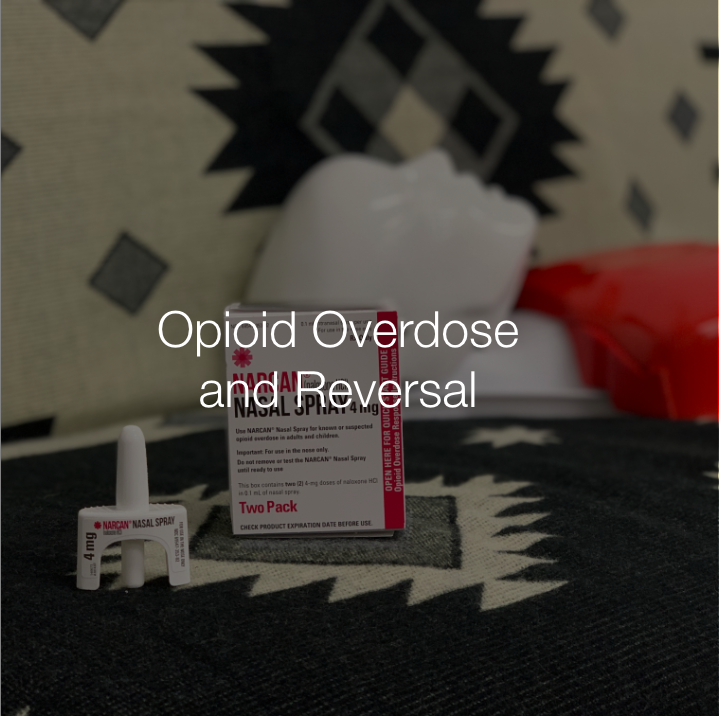
Opiod Overdose and Reversal
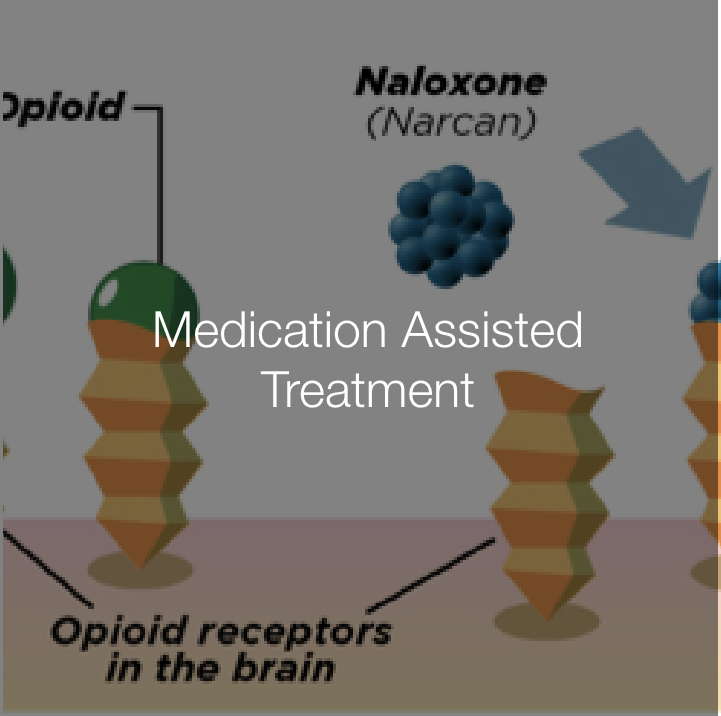
Medication Assisted Treatment
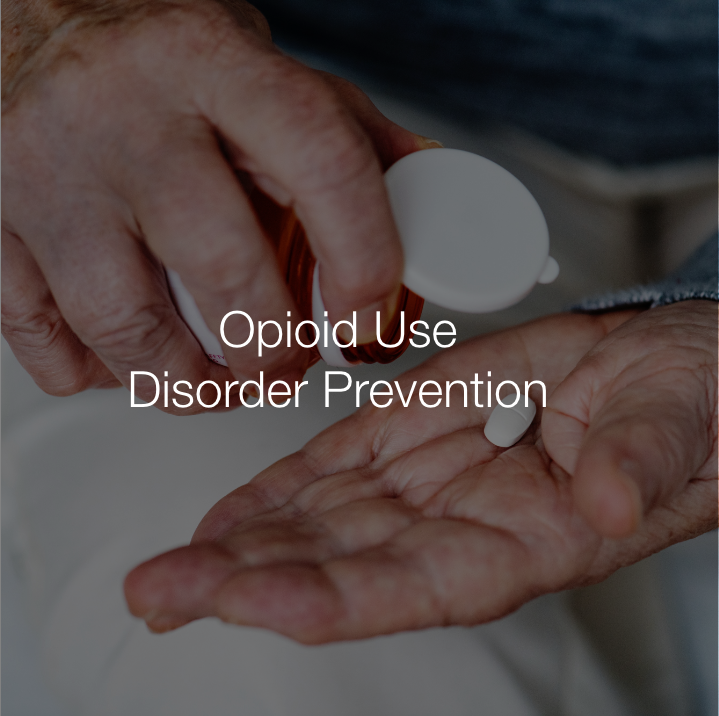
Opioid Use Disorder Prevention
Tribal MAT Project Partners
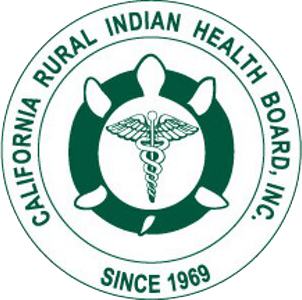
California Rural Indian Health Board – Offering support and facilitation to Tribal Programs participating in the TMAT Project and a partner in the California Indian Opioid Safety Coalition.
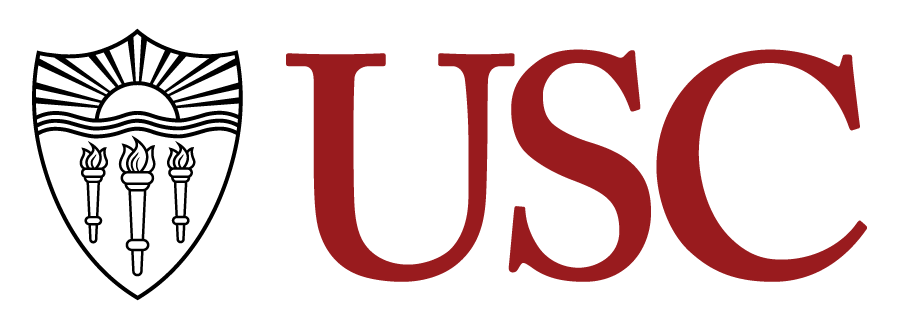
University of Southern California – Performing the Opioid Needs Assessment Project as well as project evaluation.
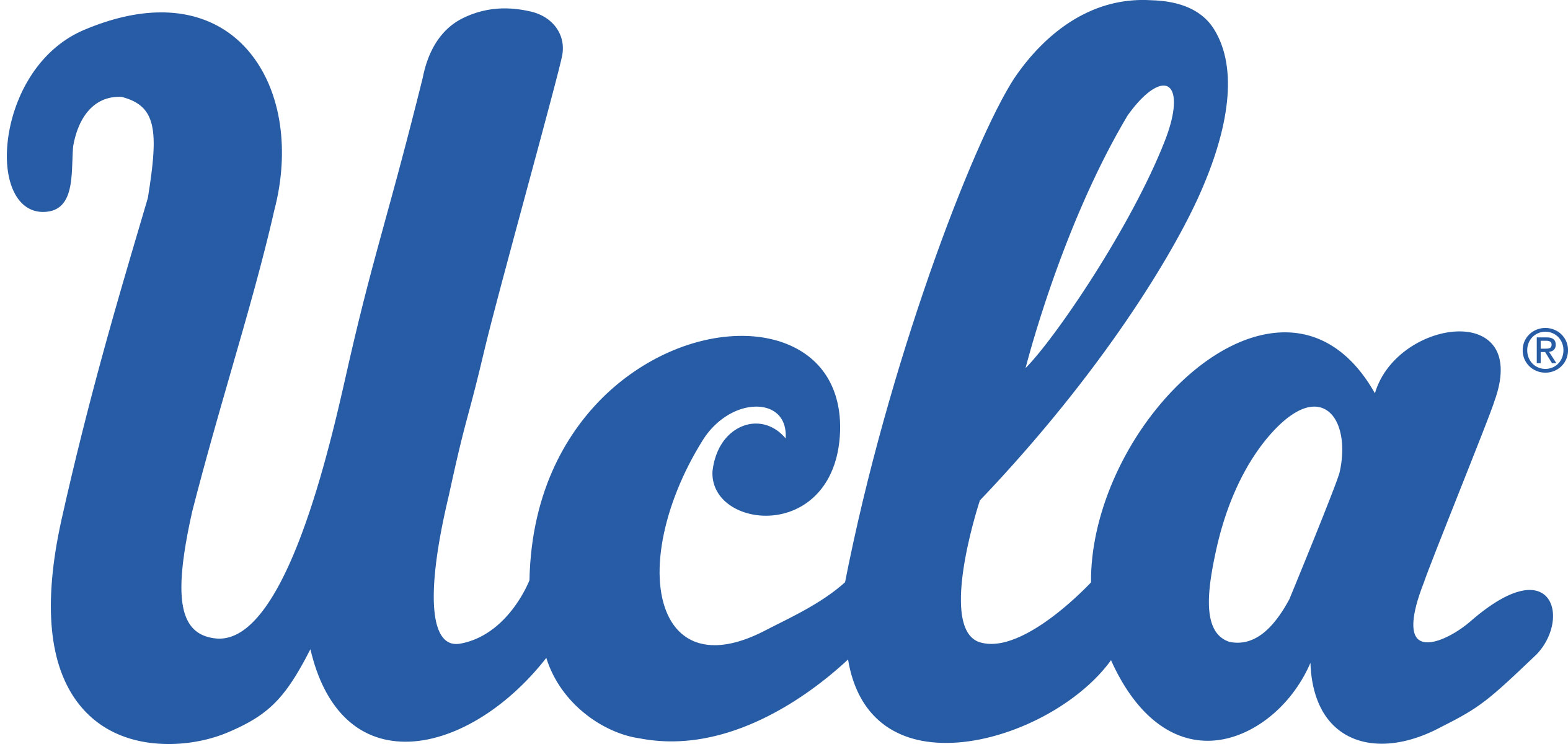
University of California, Los Angeles – Organizing and Facilitating the Tribal MAT ECHO Series.
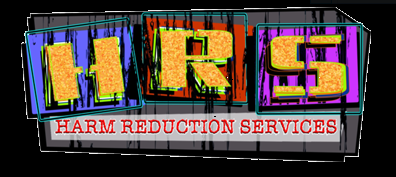
Sacramento Harm Reduction Services – Provided education and support to CCUIH staff in the development of the project. Also provided materials for cultural adaptation.

